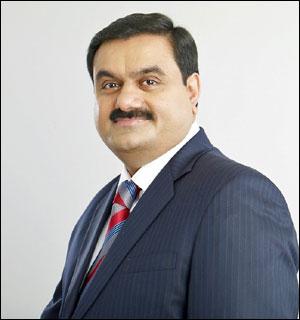It is a prudent growth oriented budget with a special focus on improving Healthcare, Education, Livelihood and Infrastructure sectors. I think the political compulsions made the FM decide that the best way is to play it safe, economics calls for austerity while the politics demands profligacy - in nut shell it is fine balance between populist measures and hard-nosed reforms.
 To project India as a favorable investment destination, it was clear that fiscal correction and ways to boost foreign investment would be high on his agenda in this year’s budget and this has been reflected in the budget speech. I am in agreement with the FM when he said that India should aim for higher growth that will lead to inclusive and sustainable development of the country.
To project India as a favorable investment destination, it was clear that fiscal correction and ways to boost foreign investment would be high on his agenda in this year’s budget and this has been reflected in the budget speech. I am in agreement with the FM when he said that India should aim for higher growth that will lead to inclusive and sustainable development of the country.
The union budget seems realistic, credible and is a sincere attempt towards achieving fiscal consolidation with heavy emphasis on infrastructuresector. Containing the fiscal deficit at 5.2 % is commendable, thiscoupled with a projection of 4.8% deficit for FY 13-14 seems achievable. Thesubsidies in petroleum sector are gradually diminishing, food andfertilizer subsidy too are at reasonable level. There is an honest attemptto bridge the gap to the extent feasible for which the finance minister andhis team deserve compliments.
The capital intensive manufacturing and infrastructure will get a push onaccount of introduction of 15% investment allowance, the validity beingtill 2015, it removes uncertainty associated with next year’s budget. Thebudget also focuses on measures that will facilitate corporates to accessfunds through tax free Infrastructure bonds for which the limit has beenrevised to Rs. 50,000 crore, extending the sunset for section 80 –IA fortwo more years too will help the infrastructure developers. The PPP modelfor improving domestic coal production, developing ports on the easterncoast of country, tenders for 3000 km of roads in the next six months etc., indicates a clear push towards propelling infrastructuredevelopment in sectors like roads, ports, coal mining and power. Thebudget has tried to clear couple of grey areas too, specifically GARR,import duty on coal etc. In a nutshell, a series of good interventions tokick start the investment cycle and investor confidence in theinfrastructure sector.
The upward revision of import duty, from 1% to over 4 % on steam coal imports will adversely impact the industry as it will lead to increase incost of power generation. This is little amusing as the country has hugedeficit in coal and the government is trying minimize cost by augmenting coal supply through various initiatives for domestic production as well asopting for price pooling of domestic and imported coal.
Steps towards implementation of GST will help the trade. It will maketaxes uniform and can also help to reduce prices. The budget has madeprovision of Rs. 9000 crore towards this, which indicate clear intent forimplementation. Today, some consumer goods are not launched in certainmarkets where the VAT rates are high as it would increase prices. GST in away will also boost consumption. It will help us to plan better and caneven boost profitability of our consumer goods portfolio, specificallyedible oils. The progress on DTC and promise to introduce the same incurrent budget session too is a positive development.
Overall, this budget can be termed a moderately populist one as the FM has tried to address majority of the issues faced by the common man and it has also shown the softer side of the United Progressive Alliance by announcing gender sensitive schemes, especially for women. I sincerely hope and wish that this budget will steer the growth of the economy upwards and India into a phase of renewed growth trajectory.







